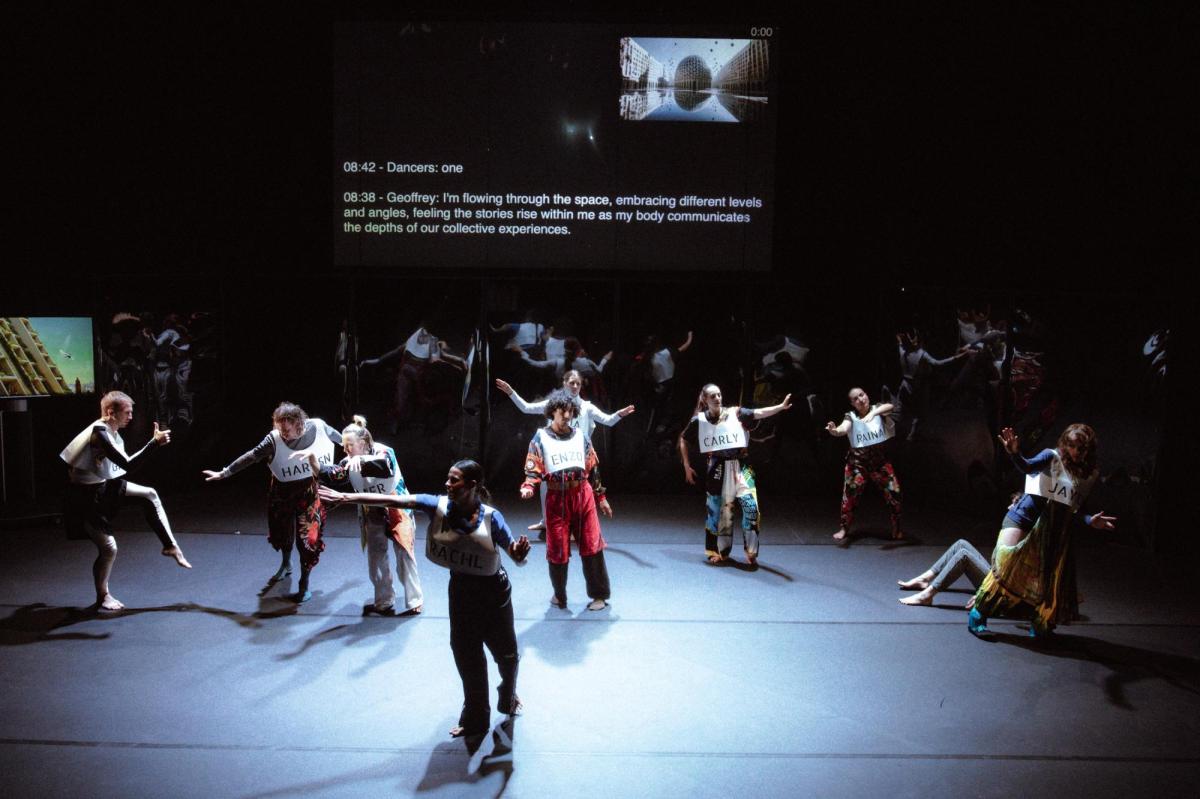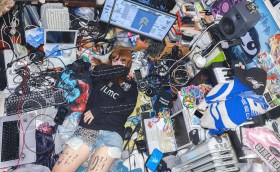Constructed by choreographer Alisdair Macindoe, Plagiary offered a new show each night guided by algorithmically-generated prompts and driven by the creativity of 10 exceptional contemporary dancers.
The production premiered at the Arts Centre Melbourne as part of Melbourne’s Now or Never 2024 festival and utilised an AI system to generate instructions for dancers to respond to throughout the 60-minute show. With a unique performance on each night and multiple ways for the audience to engage, Plagiary effectively commented on the interplay between text and dance, and artistry and technology.
Throughout the performance, audience members had the choice of engaging by following the AI prompts on a screen onstage or wearing “Plagiary glasses” to obscure the text. For more fun, individuals could elect to wear a headset with two channels: one with a computerised voice reading out the prompts (what the dancers hear) and one with additional live commentary on the performance.
While AI provided the prompts for the dancers, the surrounding elements of Plagiary were curated to offer a valuable experience each night. The audience was part of the performance, from the moment we milled into Fairfax Studio to see the 10 dancers warming up behind a transparent screen, moving around racks of clothing. Set design from Macindoe and costume design from Andrew Treloar continued to work well together throughout the evening.
While it could be expected that a show with algorithmically-generated instructions for dancers could be stilted, robotic or gimmicky, the prompts frequently generated laughs. And, despite the frequently ridiculous instructions like ‘let your movements ignite spontaneous interactions’ or ‘bridge the realms of chaos and harmony through dynamic contrasts’, all 10 dancers showed profound improvisational skills, demonstrating both their artistic individuality and clear connection to their surroundings.
Plagiary cleverly transitioned from the prompt and response format, to a brilliantly executed “interview” between two dancers.
While the interview progressed behind the transparent screen, the remaining eight dancers remained responsive to the AI in the performance space before the two different elements seamlessly merged.
In the opening night show, “Mother of Modern Dance” Martha Graham appeared on screen and her spirit proceeded to take over the interviewee’s body to choreograph ‘Martha Graham’s Prism (Plagiary)’. Graham’s influence on contemporary dance was clear in the dancers’ movements, with Prism commenting on the blurred distinction between mere influence and plagiarism.
Read: Book review: Beam of Light, John Kinsella
Despite using technology as a linchpin, Plagiary showed that humans can respond creatively to AI, but that AI can’t yet replace human creativity.
Plagiary was performed from 28-31 August at the Arts Centre Melbourne as part of Now or Never Festival 2024 and will show at the Sydney Opera House from 12-14 September as part of UnWrapped 2024.






